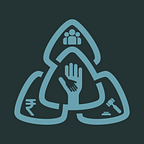SDG 4 Quality Education: Book Summary of “7 Habits of Highly Effective People”
7 Habits of Highly Effective People is a masterpiece by Stephen R. Covey and one of my personal favourite as it focuses primarily on character development of a person rather than just exterior appearances. It is a guide how a person can shift his/her focus from an external point of view i.e. how to appear in front of others to an internal point of view i.e. how to be the best version of yourself in any given circumstances. Here are the 7 golden rules mentioned in this book:
- Be Proactive. This is a very fundamental habit or more of a mindset of a person. Author suggests that there are 2 types of people in the world. One are those who are reactive. Reactive people generally have a victim mentality where they tend to blame or praise all the external factors for their success or failure rather than taking accountability of their actions. Second are proactive people, who tend to focus on improving the internal factors, i.e. factors which are there in their hands. This is called the circle of influence. We should leave the victim mentality and take ownership of our actions. Only then we are able to achieve our goals .
- Begin with the end in mind. This habit is related to structured thinking of a person. While you are planning for a goal, you should lay down the quantitative and qualitative aspects of your goal. Keep it as specific and descriptive as possible. This Habit has been briefly described in the Book Summary: Think and Grow Rich. (link:https://gsdgfoundation.medium.com/sdg-4-quality-education-book-summary-think-and-grow-rich-f901bfd8dd1e)
- Put first thing first. Our tasks can be divided into 2X2 categories based on importance and urgency. We generally prioritize things which are urgent rather than important. First, Important and Urgent Work comprises of daily important tasks which are required to be completed within given deadline. Important and not urgent tasks are the one which consists of healthy lifestyle, reading habits, relationships etc. These activities are generally neglected as they are not urgent. Third, urgent but not important matters are the one we spend most of our time with. A very common example of this is responding to constant social media messages (non work related) and last are the activities which are not important and not urgent like binge watching. These activites tend to drain our time. These all 3 activites mentioned will help a person become more independent.
- Think Win-Win. When we become independent we should start collaborating with others to create interdependence ability for self sustainability. While proposing collaborative solution people generally tend to have a win lose mentality i.e. in order for one to win other has to lose. This is wrong approach towards problem solving. Instead, we should think how all the stakeholders can benefit from the collaboration. Eg- A waste management company collaborate with a chain of suppliers and collect their waste free of cost and use it for their products raw materials.
- Seek first to understand, to be understood. You should always understand other perspective to better understand what drives them in business and accordingly use innovation and creativity to create sustainable collaborations. This habit has been briefly mentioned in How to win friends and influence people. (Please find link of summary: https://gsdgfoundation.medium.com/sdg-4-quality-education-book-summary-how-to-win-friends-and-influence-people-d28467ba07f7)
- Synergy. Synergy correspend to take actions together in a collaborative fashion. In order to attain Sustainable Development Goals, we believe, synergy is one of the primary drivers. It can be directly linked to SDG 17: Partnership for Goals. When independent organisations come together and form meaningful collaboration to solve world problems (or SDGs) by bringing all the financial, social and governmental factors together we are able to solve all the problems in a sustainable manner. This is the fundamental philosophy of our organisation “Global SDG Foundation” as well.
- Sharpen the saw. Sharpen the Saw is the metaphor used to highlight the final and most important habit that is to work consistently on the above 6 habits consistently to get the most optimized results. Author highlights that if an old tree is to cut down by an axe, then the person using it can either try cutting it with a blunt axe and takes 12–13 hours with not much optimized results. But if he takes a few hours to sharpen the saw first rather than jumping into cutting the tree, and then cut it, it is a matter of few hours only that he will achieve his desired results. It not just the outer appearance that is required to achieve success but the sharpness in fundamental characteristics of a person.
I hope this article will help everyone as a source of not only motivation but also as a guide on how to structure your life to achieve all your dreams.
